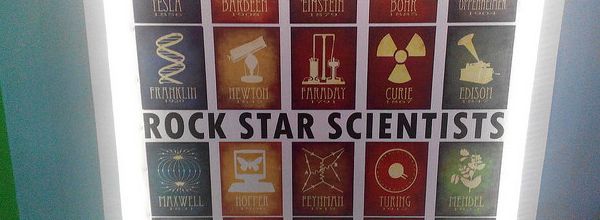Being a PhD student has many challenges, and one of them is finding an efficient way to deal with different personality types in the lab. When choosing a new lab, it’s more than just choosing a boss and a research field; it’s like joining a new family. In fact, some may feel that it’s more intimate than families since it’s unlikely that you spend 50+ hours per week next to your relatives.
In my years of research experience in the laboratory, I have learned that science attracts all kinds of personalities: (1) the secret genius; (2) the humble hard worker; (3) the gossiper; (4) the territorial scientists; (5) the corky fun scientist; (6) the complainer and insecure; (7) the socialite; and (8) the introvert lab mate. So, what can you do to handle all these possible personalities?
Learn the skill of a healthy compromise
Everyone craves a sense of belonging when they join a new crowd. As newbies, we often have the tendency to bend over backward to please others. This behavior can be difficult to overcome since our wish is to create a good impression of ourselves and not come across as uncooperative. Volunteering to do lab duties is great; however, beware of the lab dictator.
Although you are new, you should stand your ground as an individual, be firm and assertive without becoming aggressive. It’s important to recognize the difference between compromising in a relationship versus compromising for a relationship. If you are not comfortable doing what is asked of you, but you do it anyway, you will be expected to do this again countless times. Often, authoritarian personalities are not aware of how they come across to others. In the process of embracing their role as a senior student, they feel obligated to share their knowledge, and although they have the best intentions, they might appear bossy.
Be the Switzerland of the lab: stay neutral
It is inevitable that you’ll like some people more than you like others; however, avoid getting caught in drama that doesn’t concern you. I have to admit, a little bit of drama can be entertaining and can add some spice to our lives, but it stops being fun when you are somehow caught in the middle of it. When you encounter the gossiper of the lab, try your hardest to not entertain and encourage this behavior. Setting boundaries is also important. If you find yourself in a conversation that becomes negative and slowly transitions into gossip, don’t be afraid to excuse yourself before you risk partaking in the gossip. My favorite response to gossip is, “Well, that’s unfortunate,” and either switch subjects or let that be the end of the conversation. Remember, “Strong minds discuss ideas, average minds discuss events, weak minds discuss people” – Socrates.
Be social, yet professional
No one said you couldn’t be fun and social in the workplace, but avoid getting carried away planning/discussing your personal life with the lab socialite. Stay focused on your job and be productive. It is very easy to get distracted by others, but by demonstrating professionalism at any given opportunity, people may be inclined to trust you more and recognize you as an official member of the group. People around you will begin to see you as a skilled individual and will soon forget you are the new one in the bunch.
Avoid the negative downer of the lab
When working in a lab, it is guaranteed that, at some point, you will have bad days, bad weeks, and even bad months; however, don’t let negativity rule you. Negativity can be very toxic to an environment. Your time is precious! Don’t feel the pressure to sit down and listen to a negative person. Set boundaries and maintain a professional distance. Seek out for positive people; they will help you see the bright side of any situation.
Graduate school is all about problem-solving skills, so when you see yourself having some difficulties, remember to use the tools available to you like the internet, as well as other graduate fellows in your hall or your department. You may find them far more helpful than you imagined. Maintain a positive outlook, and when things get bad, sit back and look at all the progress you’ve made so far.
Keep an open mind about people. Give it time
Know that personality issues will continue throughout your life, regardless of the career path you choose. Give yourself and other people time to establish a connection with you. Sometimes people pleasantly surprise us, even after a rocky start. It takes time to know and understand someone, so don’t force it. If you think it’s worth it for you to establish a connection with someone, be patient and break through the barriers.
Learning how to avoid or approach the challenges of dealing with difficult people is an extremely valuable life lesson. As upcoming scientists and professionals, we need to master the art of communication. The ability to communicate efficiently with others, including difficult people, will help ensure a better workplace and a healthy environment. Let’s be honest, no one wants to cope with a toxic work environment. Thus, for our own sanity, we should work on creating a great workplace culture. As stated by Amelia Earhart, “The most difficult thing is the decision to act, the rest is merely tenacity.”
Having a healthy balance between your personal and professional life is the key to success. Also, having some like-minded friends, such as coworkers, can certainly make your transition into a PhD life much easier. Dealing with all kinds of people can really teach you a lot about yourself, which is an accomplishment in itself.
Do you have any more tips for surviving being the newbie of the lab? Let us know in the comments below!
Links to related articles
What You Need to Know to Get into Your First Lab: A guide for the Overwhelmed Undergraduate by Josiah Racchini on 5th of August, 2015 in Career Development & Networking, PhD Survival
6 Common Fears When Entering the Lab and How to Deal With Them by Lotte Watts on 20th of July, 2015 in Personal Development, PhD Survival
Featured image from IAEA Imagebank.




